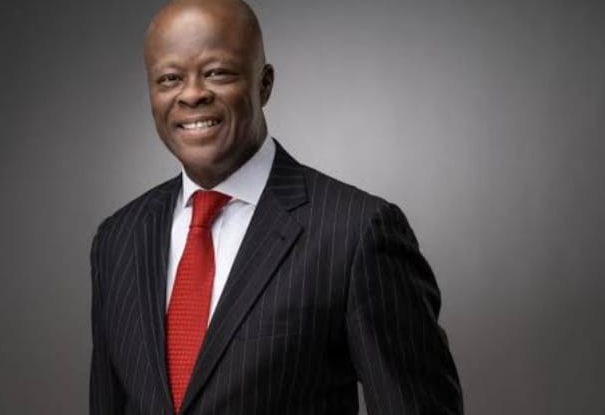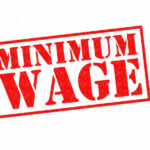The conversation around the minimum wage has dragged for a while as Nigerians continue to endure the biting economic crunch and rising inflation ravaging the purchasing power.
The minimum wage conversation has been elevated to a fever pitch. Headline inflation as of May, 2024, stood at 33.95 per cent, data from the Nigeria Bureau of Statistics (NBS) indicated.
Food inflation, which is choking Nigerians now, reached 40.66 per cent in May, 2024, which was a significant increase from the 24.82 per cent recorded in May, 2023. Commodities’ prices have spiked. Taken together with rising transportation and the impacts of the naira devaluation, it is indeed a difficult time to be a low and medium-income earner in Nigeria.
Worried by the rising cost of living, Nigerian workers began to demand an upward review of the National Minimum Wage, which is still pegged at N30,000 per month.
- Scores rendered homeless as flood wreaks havoc in Jigawa community
- NIGERIA DAILY: Reasons Behind The Current Resurgence Of Fuel Scarcity
The Nigeria Labour Congress (NLC) began the demand for a review of the wage in 2023 following the removal of fuel subsidy by President Bola Ahmed Tinubu on May 29, 2023. They went into a negotiation with the federal government, pressing for N495,000. The government offered N60,000 per month. The NLC, after a series of negotiations, lowered their demand to N250,000.
The NLC is considering heading to the trenches again if the federal government doesn’t offer a wage good enough to ameliorate the ripple effects of its reforms and policies on fuel subsidy removal, free float of the naira and devaluation of the naira.
The state governors have also joined the conversation, claiming they can’t pay above N60,000. The organised private sector seems to be comfortable with the N60,000 as well. However, some states want a localised minimum wage arrangement.
While the horse-trading continues, one thing is certain – an upward review of the minimum wage that may not be less than N60,000 across the country.
But what would be the likely impact on workers? What would be the impact on inflation? What would be the impact on the state governments? What would be the impact on the organised private sector and small businesses?
Minimum wage and Inflation growth
In 1972, the Udoji Public Service Review Commission was set up by the military government to examine the organisation, structure and management of public service. In 1974, the commission made far-reaching reform proposals, which included 100 per cent increase in salaries and benefits across the board – to be backdated to 1972 and paid in arrears.
When implemented, Nigerians’ went on an import spree. Local manufacturing plummeted. Unemployment spiraled. From 5.40 per cent in 1973, inflation rose to 12.67 per cent in 1974 and 33.96 per cent in 1975.
That policy caused significant distortions to Nigeria’s economic fabric, Analyst recalled.
What is a fair wage in today’s context?
In 2019, when the minimum wage was reviewed from N18,000 to N30,000. Inflation jumped from 11.40 per cent to 13.25 per cent, and by 2021, it reached 16.95 per cent.
Yinka Ademuwagun, a treasury and investment professional, said, “In 2019, the minimum wage in Nigeria was set at N30,000, which was approximately $75 at the exchange rate. Given the depreciation of the naira, the equivalent of $75 today is around N110,000. This historical perspective suggests that a minimum wage of around N100,000 could be considered fair in today’s context, accounting for currency devaluation.
“Also, if you compound the minimum wage of 2019 using the average yearly inflation since 2019, you will have approximately N64,000 as the new minimum wage for 2024. This approach aims to protect the average Nigeria’s purchasing power by growing the minimum wage based on previous years’ inflation rates.”
Ademuwagun argued that With a N60,000 minimum wage, it’s unlikely inflation would be impacted that much considering that the inflation is currently at breakneck margins. However, there is usually a price reaction on goods and services with an upward review of the minimum wage.
Commenting, Dr Mustapha Shitu, the immediate past Managing Director of the Kaduna State Enterprise Development Agency (KADEDA), said a new minimum wage, when implemented, should apply to all employees in Nigeria, but that he was not too excited about the new minimum wage because of how traders reacted to wage increment.
He said, “Ideally, the minimum wage is the least paid to any kind of employee within a system, e.g., a security guard in a house, a house help and a driver.
The SMEs are affected because the purchasing power of the citizens has increased, which should ideally mean citizens should be able to buy more. Unfortunately, in Nigeria it is the reverse, an increase in minimum wage automatically means an increase in prices of goods and commodities. Therefore, there is little to no positive effect on the lifestyle of the citizens.”
On whether the state government would be capable of paying a new minimum wage of up to N60,000 or more, he said, “It is very feasible to pay. State governments are playing politics. If the governors take advantage of the resources in their respective states and draw up sources of revenue generation (tax) they can do it. For example, the states can build new roads and toll them to generate more revenue. Again, if they draw up a policy that says each house should maintain its surroundings (gutter, grass, etc) to assist the government in sanitation, defaulters would be levied to generate money.”
He also tasked the government to reduce wasteful spending, saying, “The government should reduce its cost, e.g., the number of aids, cars in convoys, and unnecessary foreign trips. Instead, the funds should be channeled to more useful projects within the states.”
The DG of the Nigeria Employers’ Consultative Association (NECA), Mr Adewale Oyerinde, in an interview monitored on Raypower FM recently, said the MSMEs would be hit the biggest with a new minimum wage as their cost of operations would balloon. He warned that some MSMEs might reduce their staff strength to survive while some might automate their operations if they had the capability.
He further said a national minimum wage should be binding on all employers, whether the government or private.
In addition to the above, some employers may owe wages due to dwindling revenues and high-cost of doing business. Thus, while the new minimum wage will excite workers, there will be other unintended consequences that may hurt the economy as well.

 Join Daily Trust WhatsApp Community For Quick Access To News and Happenings Around You.
Join Daily Trust WhatsApp Community For Quick Access To News and Happenings Around You.


